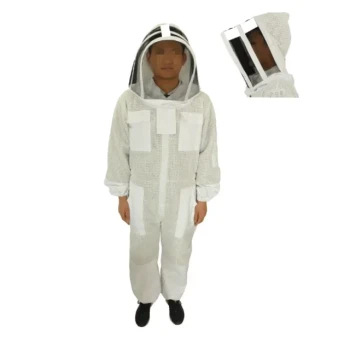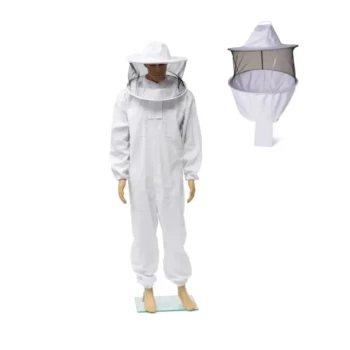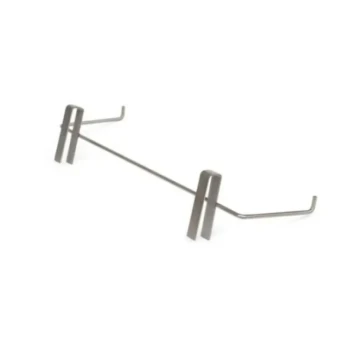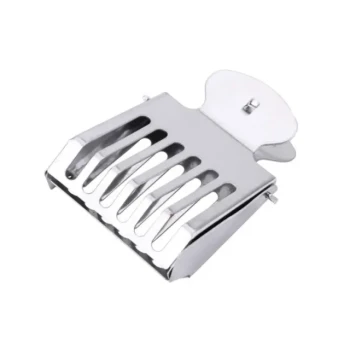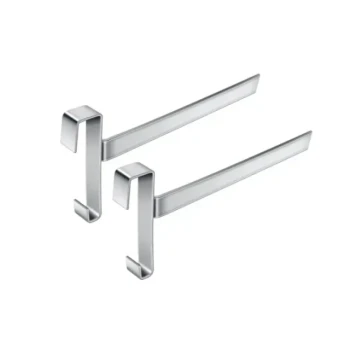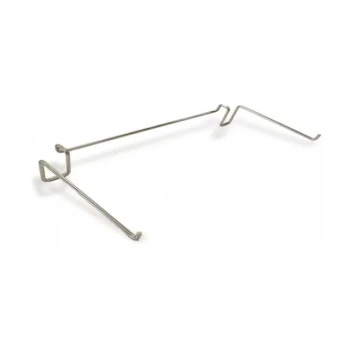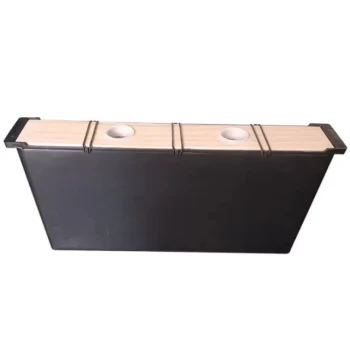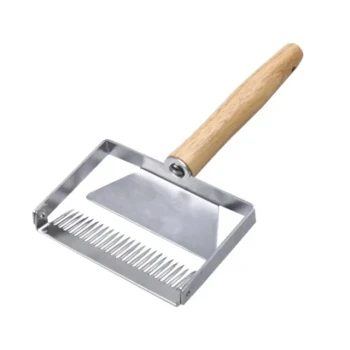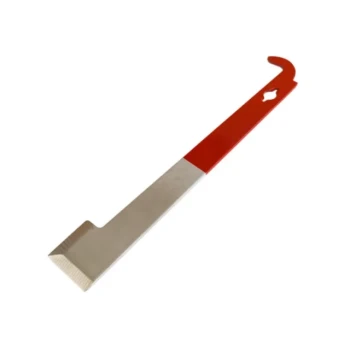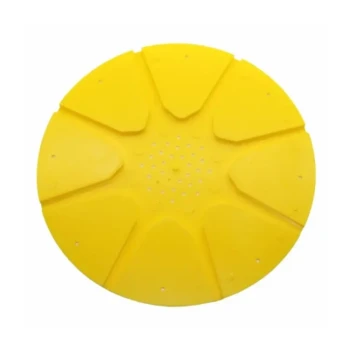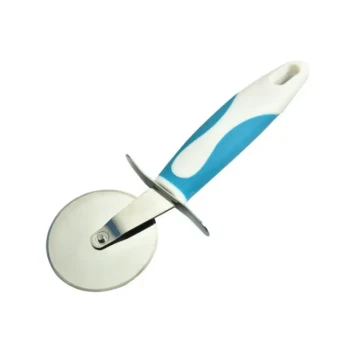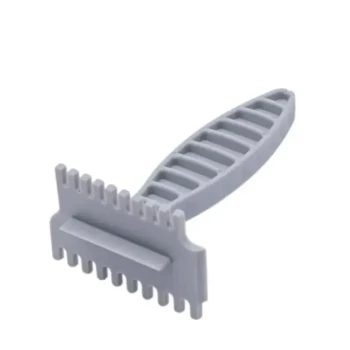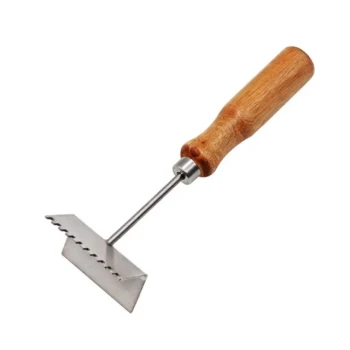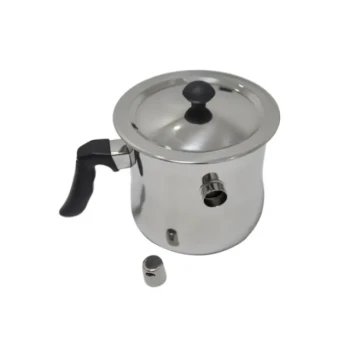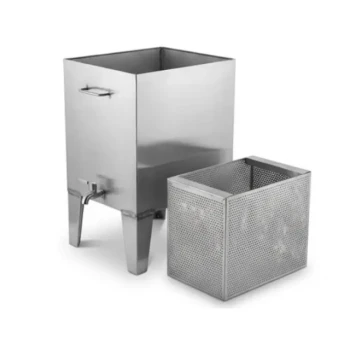The primary reason some experienced beekeepers forgo gloves is to gain superior dexterity and tactile sensitivity. This allows them to handle bees and equipment with a gentleness and precision that thick gloves prevent, ultimately leading to a calmer hive and a lower risk of crushing individual bees.
The choice to wear gloves is not about bravado; it is a calculated decision that trades physical protection for tactile feedback. While going gloveless enables more delicate movements, it is a technique best reserved for confident keepers who can accurately read bee behavior.
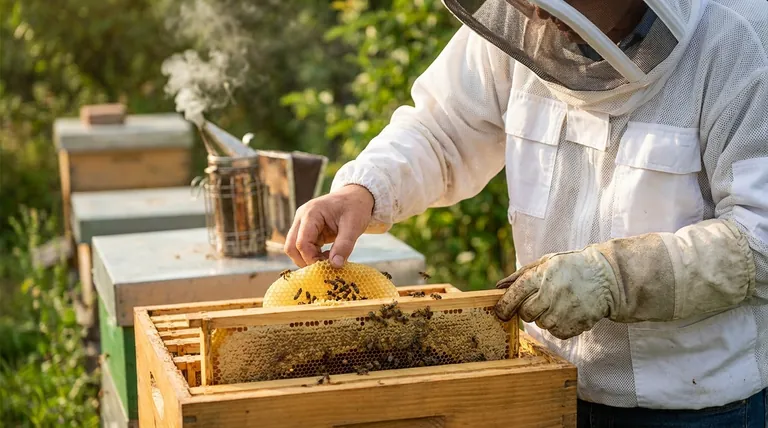
The Case for Going Gloveless
The decision to work without gloves is rooted in the desire for a more direct and sensitive connection with the colony. This approach prioritizes finesse over fortitude.
Enhanced Dexterity and Precision
Bare hands allow for the most precise movements possible. This is critical when manipulating delicate frames of honeycomb, inspecting for queen cells, or handling individual bees without causing harm or disruption.
Improved Tactile Sensitivity
Without a layer of leather or rubber, a beekeeper can feel the vibration and movement of the bees on a frame. This sensitivity helps prevent the accidental crushing of bees, an action that releases alarm pheromones and can trigger a defensive response from the entire colony.
Fostering a Calmer Hive
Experienced beekeepers who are calm and confident in their movements transfer that tranquility to the hive. Gentle, deliberate handling without clumsy, glove-induced mistakes results in less agitated bees, making the entire inspection process smoother and safer.
The Non-Negotiable Role of Protection
While going gloveless has its benefits, gloves remain a foundational piece of safety equipment, especially for those new to beekeeping. Their role extends beyond simple sting prevention.
Preventing Painful Stings
The most obvious function of gloves is to protect the hands and fingers, which are highly sensitive and common targets for stings. This protection is paramount for a positive beekeeping experience.
Providing Peace of Mind
For new beekeepers, the fear of being stung can cause hesitant or jerky movements, which ironically increases the likelihood of agitating the bees. Gloves provide a sense of security, allowing the keeper to focus on learning and performing tasks correctly.
A Barrier Against the Elements
Beekeeping is a sticky business. Gloves keep hands clean from honey and, more importantly, propolis—a resinous "bee glue" that is incredibly difficult to wash off skin and can cause contact dermatitis in some individuals.
Understanding the Trade-offs
The decision to wear gloves is a classic technical compromise. You must weigh competing priorities to determine the right approach for the situation.
Dexterity vs. Security
This is the central conflict. Thick leather gloves offer maximum protection but are clumsy, making delicate work difficult. No gloves offer perfect dexterity but zero protection. Thinner nitrile gloves offer a middle ground, improving feel while still providing a sting-resistant barrier.
The Impact on Bee Health
Clumsy handling with bulky gloves can injure or kill bees, harming the colony and triggering defensive behavior. In this context, the gentle touch afforded by bare hands can be a tool for improving hive welfare, but only if the beekeeper is skilled enough to avoid being stung.
The Critical Role of Experience
The ability to work without gloves is not a starting point; it is an earned skill. It requires a deep understanding of bee temperament, the ability to read a colony's mood, and the confidence to move deliberately. Beginners should always prioritize protection to build this experience safely.
Making the Right Choice for Your Goal
Your level of experience and the specific task at hand should guide your choice of hand protection.
- If your primary focus is learning and safety as a new beekeeper: Your non-negotiable priority is building confidence. Always wear a full suit and gloves.
- If your primary focus is improving dexterity with an intermediate level of experience: Consider transitioning from thick leather to snug-fitting nitrile gloves to gain more tactile feedback while retaining protection.
- If your primary focus is maximum gentleness with calm, familiar colonies: Going gloveless for specific, delicate tasks can be a valid choice, but always have protective gear immediately available.
Ultimately, the best protective gear is the set that enables you to work with your bees calmly, confidently, and safely.
Summary Table:
| Aspect | With Gloves | Without Gloves |
|---|---|---|
| Dexterity | Limited, clumsy movements | Superior, precise handling |
| Tactile Feedback | Reduced, less sensitivity | High, feel bee vibrations |
| Protection | Maximum sting protection | No physical barrier |
| Best For | Beginners, safety-focused tasks | Experienced keepers, delicate work |
Ready to optimize your beekeeping safety and efficiency? At HONESTBEE, we supply commercial apiaries and distributors with high-quality beekeeping supplies and equipment tailored for every skill level—from sturdy gloves for beginners to specialized tools for advanced techniques. Let us help you choose the right gear for confident, productive hive management. Contact our experts today to discuss your needs!
Visual Guide
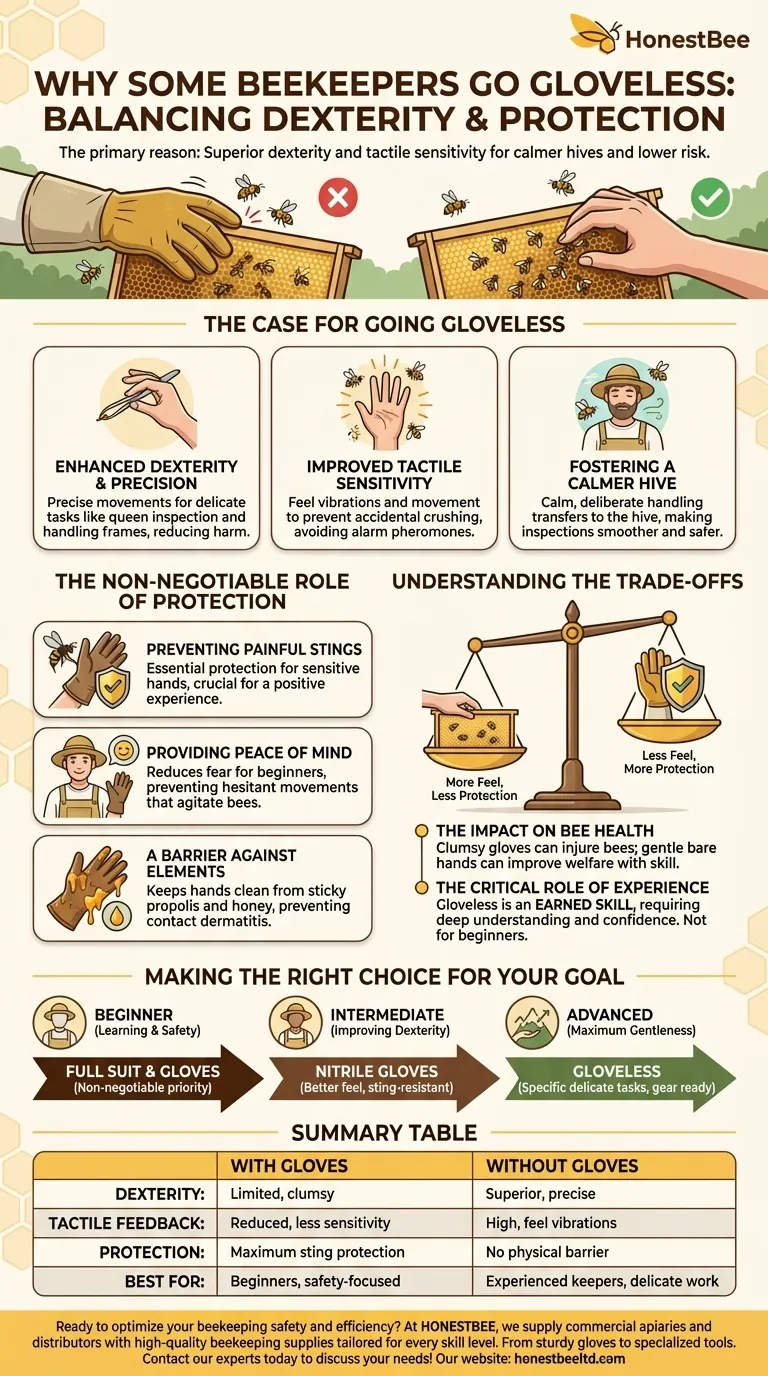
Related Products
- Vented Beekeeping Jacket with Hood and Veil for Beekeepers
- Three-Layer Ventilated Beekeeper Suit with Structured Fencing Veil
- Professional Cotton Beekeeper Suit with Round Veil Design for Commercial Apiaries
- Yellow Plastic Bucket Pail Perch for Beekeeping
- Long Langstroth Style Horizontal Top Bar Hive for Wholesale
People Also Ask
- What should beginner beekeepers consider when choosing beekeeping gloves? Balance Protection and Dexterity for Success
- Is it advisable to use a washing machine for cleaning beekeeping gloves? Expert Tips for Glove Longevity
- What are the arguments for and against using bee gloves? Balance Safety and Precision in Your Apiary
- What are the characteristics, pros, and cons of leather beekeeping gloves? Find Your Perfect Hive Protection
- What is the role of protective gloves in beekeeping? Essential Materials and Benefits for Safe Hive Management
- What are the arguments for and against using gloves in beekeeping? Balancing Protection and Dexterity
- What are the primary purposes of using beekeeping gloves? Protect Your Hands and Ensure Apiary Hygiene
- How do ventilated beekeeping gloves improve comfort in hot weather? Maximize Grip & Airflow in the Apiary

